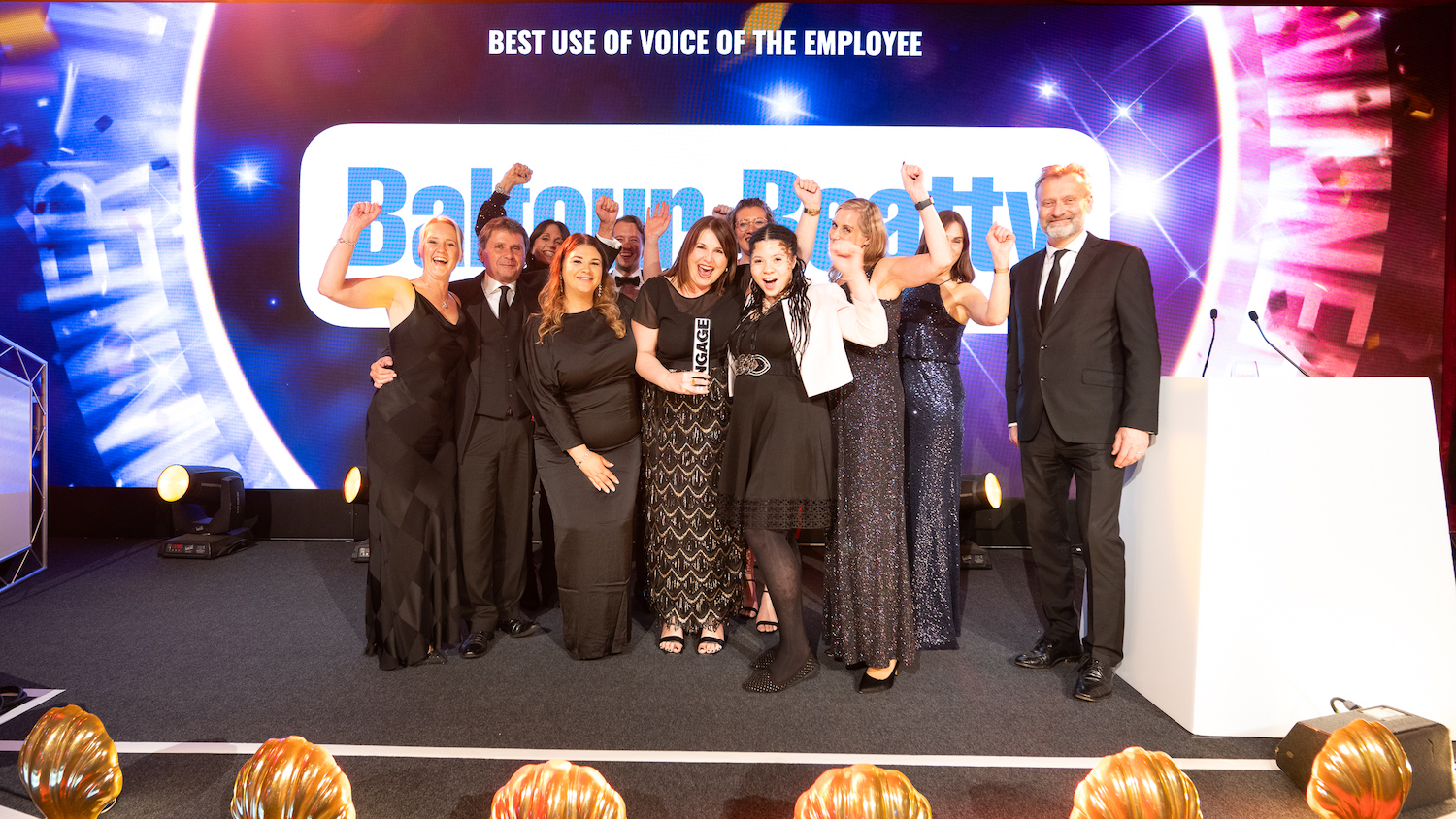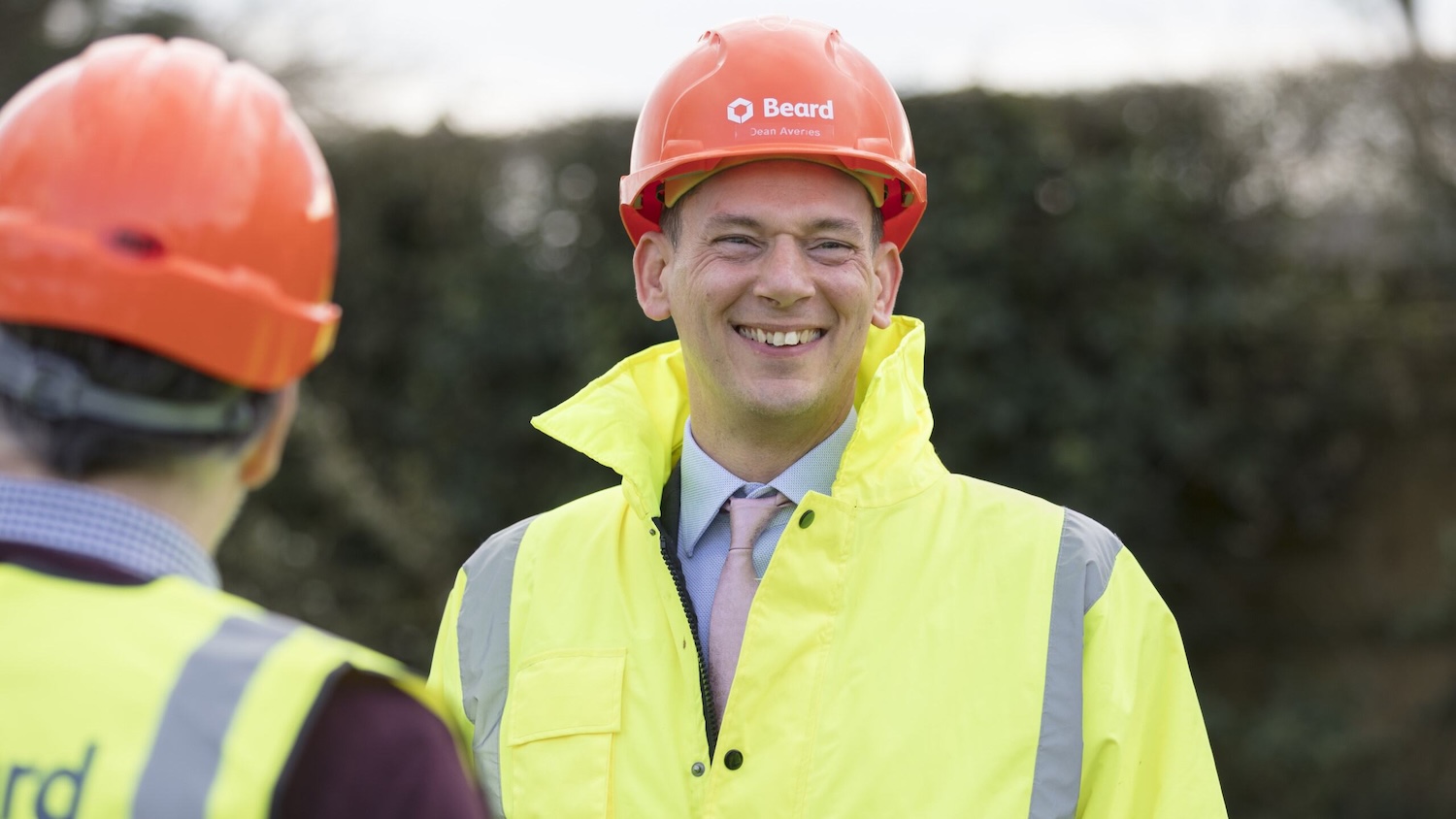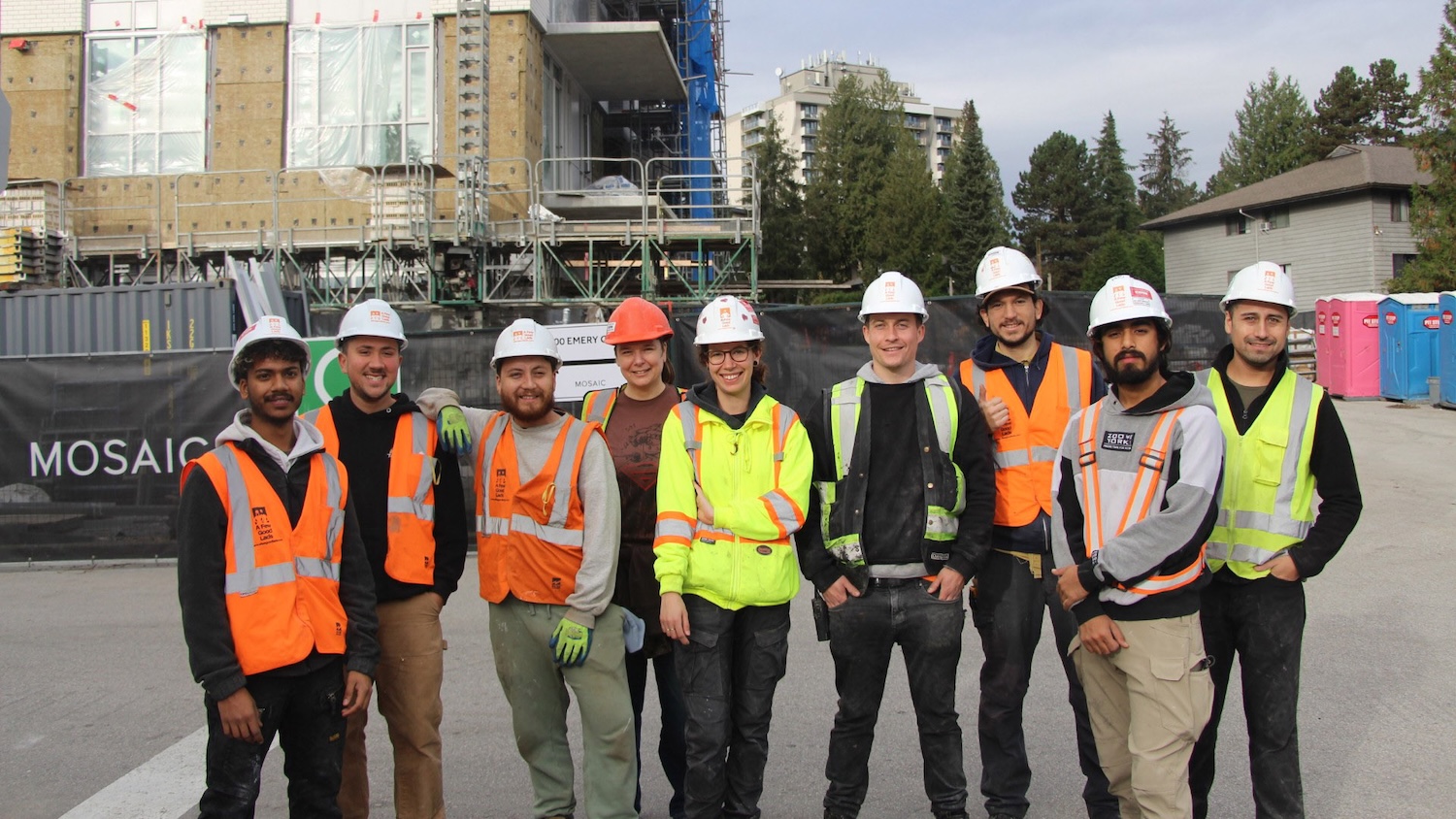
Nuclear lessons: empowered leaders raise construction productivity
Matt Paradise MCIOB, senior commercial manager at Laing O’Rourke, tells CIOB People how he hopes a case study at Hinkley Point C will help to improve productivity in construction
Tell us about the research you have been working on.
My research – Perceptions of empowerment and management productivity in construction – a case study of a joint venture at a nuclear power station – explores perspectives of empowerment and management productivity in the construction industry, with the view of it influencing overall construction productivity.
The research draws on qualitative and quantitative data from a case study at Hinkley Point C, with responses from more than 260 survey participants and 17 interviews.
The research involved construction professionals at various levels, from site managers to senior executives.
By identifying patterns in responses of the constraints and enablers to their perceived productivity and empowerment, the research aims to provide practical insights into how management can optimise their teams to enhance project performance.
What inspired you to research this topic?
Laing O’Rourke is a leading engineering enterprise with a real emphasis on investing and developing its employees.
I was inspired during the internal application process for sponsorship to study at the University of Cambridge because of one question posed by Laing O’Rourke to prospective students, which really struck a chord on a personal level.

Construction firms can use the insights [from the research] to shape their leadership development programmes, ensuring managers are equipped with the skills and authority needed to drive productivity
This question was: ‘Accelerating and managing talent in construction – how do we do this better?’.
Throughout the module weeks at Queens’ College, Cambridge, I held onto this question and approached each debate and presentation with this in mind.
During [this time], alongside industry leaders and academic peers, we reviewed the sector’s well-documented challenges and opportunities across key themes, including sustainability, digitalisation, leadership, finance, innovation and systems thinking.
Having observed variations in leadership approaches throughout my career, I have since questioned the impact of various approaches on management productivity and ultimate project success, both in the short and long term.
Academically, in my second-year studies at Cambridge, with guidance from my supervisor, Dr Paul Heffernan, I became particularly intrigued by the concept of motivational theories and ultimately empowerment, whilst maintaining my north star of improving overall construction productivity.
What are the key findings?
The analysis from the interviews is summarised into five key findings:
- Joint ventures (JV) – Some participants felt there is a natural autonomy to working in a JV. Secondment at the point of entry was also seen, by some, as a way of increasing the speed at which management feel empowered and productive.
- Regulatory constraints – The use of guardrails for management to work within approved boundaries can boost empowerment and increase productivity in what was described by one participant as the “perceived” constraints of working on a nuclear project. Site managers and leaders who had greater clarity regarding their decision-making authority noted being able to respond more quickly to on-site challenges, reducing downtime and improving workflow efficiency.
- Working environment – Technology advances and adoption of ‘dashboards for performance monitoring’ removed the need for repeated meetings to report progress to multiple stakeholders, because the data is issued through a single source of truth. Such a transparent working environment drives productivity and speedy decision-making.
- Human resources: training and development – There is a perception, for some, that formal mentoring has demonstrated greater success in training managers and developing problem-solving skills. The findings suggested that shifting towards a more empowerment-focused leadership model could significantly improve industry efficiency through improved networking, particularly on major projects.
- Culture: employee engagement improves output – Teams working under managers who encouraged autonomy and collaboration reported higher levels of motivation and job satisfaction, which translated into better perceived productivity.
Why are the findings important for the construction industry?
The construction industry is front and centre of a technological and green revolution, both in the UK and globally, with more than 390 nuclear power plants in the global pipeline.
Opportunities through net zero targets and artificial intelligence innovation result in significant projected investment throughout the infrastructure sector.
My research provides perspectives from managers in the nuclear construction industry regarding their constraints and enablers to empowerment and productivity on the first nuclear construction project in a generation.
Such findings are not only significant to the global nuclear pipeline but are also transferrable to the wider mega project sector, particularly joint ventures and those with increasing project complexity and regulatory requirements.
Managers can directly improve the industry’s productivity statistics by creating more agile and responsive cultures. By creating frameworks and empowering managers to make informed decisions, companies can reduce delays and minimise expense.
Furthermore, improving productivity and supporting employee motivation through enhanced leadership approaches that boost empowerment and management productivity, with a focus on the psychological and physical demands on managers, can help retain skilled workers and attract new talent.
Improved communication tools can mitigate distractions and inefficiencies and encourage forward thinking.
Ultimately, this research highlights that investing in project culture and shaping communication strategies that foster informed decision-making and collaboration is not just beneficial for individual managers but is essential for improving overall industry performance.
[I was] able to reflect on the environment created at Cambridge for students to be curious and learn without the fear of failure. Somehow, we need to echo this in the workplace to challenge and improve
How do you think the research will help to improve leadership and productivity?
By unearthing real-world perspectives of empowerment and management productivity, this research provides a strong case for focus on culture and working environment.
Construction firms can use these insights to shape their leadership development programmes, ensuring managers are equipped with the skills and authority needed to drive productivity.
Implementing training that focuses on decision-making autonomy, problem-solving and team motivation can lead to more effective leadership at all levels, boosting perceived empowerment.
This research also encourages companies to adopt a more integrated leadership approach, recognising that motivated and engaged employees can drive project productivity.
By embracing these principles, construction firms can build stronger, more resilient teams capable of delivering high-quality projects efficiently and cost-effectively.
What are the next steps?
The next phase of this research involves further exploration of practical implementation strategies.
A key focus will be developing a framework for businesses to adopt productivity-focused, empowerment-driven leadership models tailored to the construction sector, relevant to all levels of staff.
This could include specific training modules, project policy recommendations and case studies illustrating successful applications, further extending the primary research beyond the major project/nuclear sector.
Another crucial step is sharing these findings with industry bodies, such as the CIOB, and workplace policymakers.
Having now completed the course, one pertinent learning for me was being able to reflect on the environment created at Cambridge for students to be curious and learn without the fear of failure. Somehow, we need to echo this in the workplace to challenge and improve.
By continuing with my north star and journey of improving construction productivity, my aim is to contribute towards a more efficient, motivated and sustainable construction industry that can better meet the challenges of the future.






